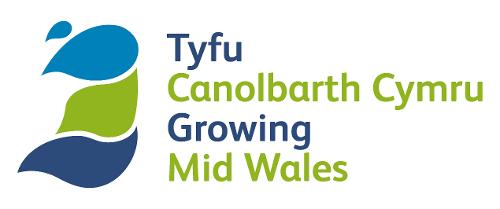26.06.25 Phase 1 of the Whole System Research and Innovation for Decarbonisation (WSRID) programme—delivered by Growing Mid Wales and funded by the Welsh Government—has brought valuable insights into how Smart Local Energy Systems (SLES) can support decarbonisation across the rural economy.
Through five feasibility studies, the programme has advanced our understanding of how these systems can address grid capacity constraints, boost rural energy self-sufficiency, and reduce emissions—laying the groundwork for Phase 2, which will focus on real-world testing and routes to commercialisation.
The findings highlight the significant benefits that can be achieved through the innovative use of both established and emerging technologies. From tackling energy inefficiency and managing agricultural waste, to improving the ecological health of our watercourses and reducing the energy load of rural communities, these projects offer practical solutions that can drive carbon reductions while stimulating local economic growth.
Two pioneering agricultural projects funded through Phase 1 are leading the way in exploring how farms can contribute to Wales' net zero ambitions. Both are trialling new approaches to resource management, renewable energy generation, and emissions reduction—offering scalable models for the future of farming in Mid Wales.
Power from Slurry: Lafan & Coleg Sir Gâr
Lafan, a Welsh Business Consultancy based in MSparc on Ynys Môn, working throughout Wales, is a catalyst for transformation, a bridge between challenges and solutions.
Lafan, working in partnership with Coleg Sir Gâr, focused on a critical issue facing the livestock sector: slurry management. Their project explored the potential of establishing a centralised slurry treatment hub that could serve clusters of farms. Using advanced technologies such as anaerobic digestion (Breaking down waste without oxygen to produce biogas - a renewable gas from decomposed organic waste, used for energy) and pyrolysis (Heating organic material without oxygen to create biochar, a charcoal-like substance from biomass that improves soil and stores carbon), the team investigated how to convert livestock slurry into renewable energy and biochar.
As part of the study, they looked at dewatering processes developed at Gelli Aur Agricultural Research Centre, which can significantly reduce the water content in slurry—lowering storage and transport needs—while recovering up to 98% of the nutrients. These can be reused or redistributed more efficiently to reduce agricultural pollution and support the circular economy.
Their vision includes creating regional hubs powered by biogas and capable of exporting renewable heat and electricity to nearby businesses, while reducing the environmental impact of farming.
Water to Water: First Net Zero Milk Wales
The Water to Water project—delivered in partnership with dairy cooperative First Milk—explored the implementation of Smart Local Energy Systems (SLES) on farms. These systems aim to enable dairy farms to become energy self-sufficient, powering everything from milking equipment to hot water systems and vehicles using on-site renewable generation and storage.
By tailoring clean energy systems to individual farm operations, the project seeks to reduce carbon emissions while also enhancing long-term financial sustainability for farmers. This approach supports the decarbonisation of the agricultural sector without overloading the local electricity grid—offering a scalable model that could be replicated across rural Wales and beyond.
Looking Ahead
The WSRID programme demonstrates that the ambition of decarbonising rural communities is both achievable and worthwhile. By enabling local renewable energy generation and storage, these projects show how we can drive economic growth—supporting local installers, suppliers, and contractors—while also reinvesting revenues into community-led initiatives that strengthen social cohesion and well-being.
Building on the success of Phase 1, the next stage of the programme will support a selection of projects to move into prototype and demonstrator development. This phase will provide opportunities for real-world testing and refinement, helping to shape scalable, commercially viable solutions for a low-carbon rural economy.
To find out more about all the projects that have received WSRID funding, visit: www.growingmid.wales/WSRID




